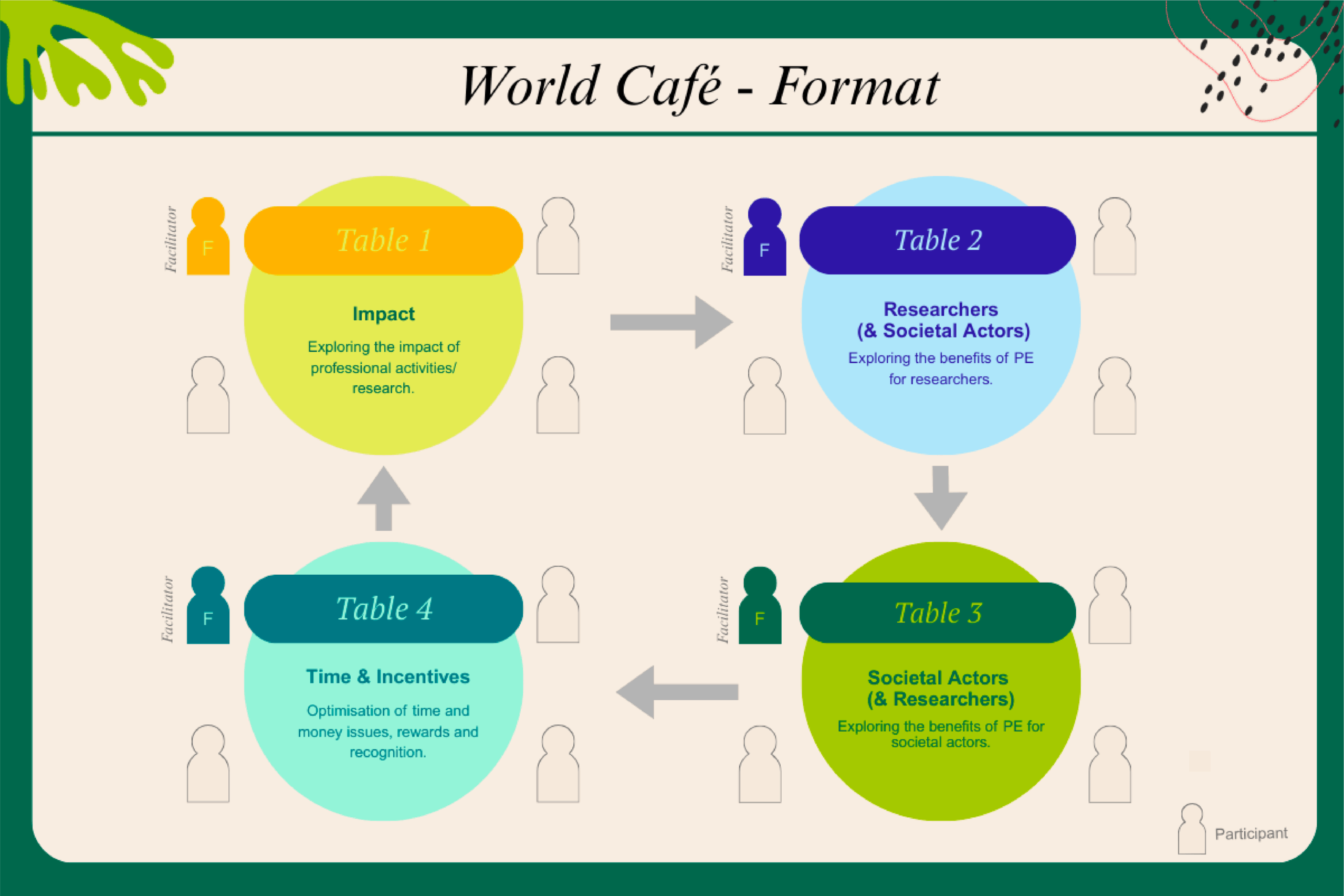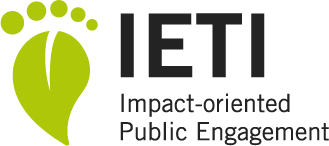Action Research Methodology

Our aim is to embed Public Engagement (PE) in research practices, careers and strategies while fostering exchange, collaboration and co-creation between science and societal actors.
Using the MfN as a case study, we applied an action research process to reflect on these
objectives and co-develop solutions with MfN researchers and professionals that address their
motivations, barriers and needs related to Public Engagement. This process unfolded over four
action and reflection cycles, the last of which consisted in the implementation of the IETI Hub for
Research Impact.
Action 1: Initial Assessment
In our initial assessment we focussed on identifying the PE initiatives already present at the museum, building relationships with institutional key actors and mapping key barriers regarding involvement with PE. We learnt that although several PE initiatives are already being implemented at MfN, they do not sufficiently address the challenges and barriers we identified. Therefore, we needed to better understand our target group, their needs and limitations to effectively integrate PE into their work practices and routines.
Action 2: Questionnaire
We conducted a questionnaire based on the insights gained in the first action, targeted at MfN researchers not involved in PE. The questionnaire aimed at understanding the motivations, barriers and institutional support needs related to PE. While the majority of MfN researchers are open to dedicating time to PE, their involvement is influenced by several factors. Many are lacking funding, time, incentives, methodologies, best practices and are seeking institutional support or dedicated platforms. The next step was to understand the factors influencing PE involvement better: What do MfN researchers and professionals understand as the impact of their work? How can we support interaction with societal actors and make it beneficial to both sides? How can we promote PE while addressing time constraints and creating effective incentives for involvement? How can we promote MfN PE institutional awareness?
Action 3: World Café
After reflecting on action’s two results, the resulting follow up action was a World Café, where 12 MfN researchers and professionals came together to co-develop solutions to address the 4 main barriers for PE involvement:
1. Impact, focused on understanding the impact of professional activities.
2. Researchers (& Societal Actors), focussed on benefits for researchers.
3. Societal Actors (& Researchers), focussed on benefits for societal actors.
4. Time & Incentives, focussed on optimisation of time and money issues, as well as rewards and recognition.
This qualitative data collection method highlighted the need for a programme that offers incentives such as funding, dedicated time, and visibility; PE institutional support and improved awareness and accessibility of the museum’s PE activities; opportunities for networking and collaboration with MfN colleagues and societal actors; and space for reflection on the impact of research and museum work.

Action 4: IETI Hub for Research Impact
As a result, we launched the IETI Hub for Research Impact in November 2024 — a six-month capacity building, mentoring, and support programme aimed at integrating impact-oriented PE into the work and careers of MfN researchers and professionals. Designed as an intervention to address the results and solutions identified through the questionnaire and World Café, the programme responds to the needs of MfN researchers and professionals.
The programme’s effectiveness and impact was measured through pre- and post- program Impact Assessment Sessions which included questionnaires and semi structured interviews with programme participants.

